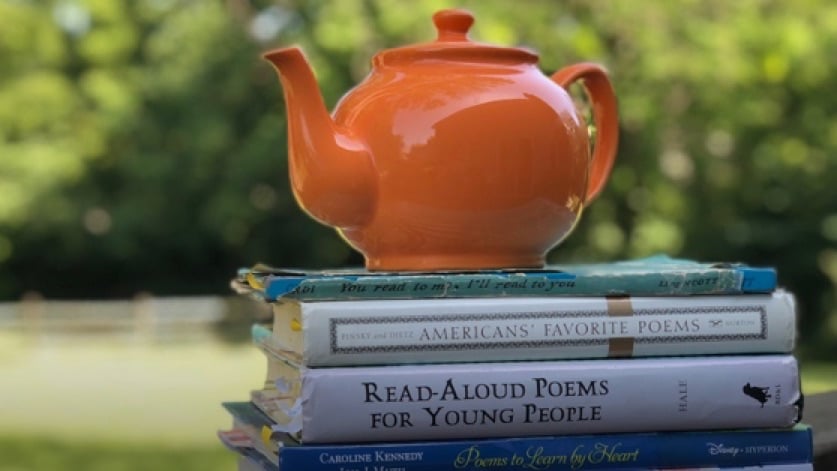Playing with Poetry: Exploration invites families to dive deep into a single writing subject over the course of four weeks. Writers will read a variety of poems to answer the fundamental question: What counts as poetry? Poetry allows writers to focus on play with language and form as they practice crafting messages within established structures.
In the course of class, writers develop an appreciation for language, musicality, literary elements, and rich vocabulary. Each participant emerges from class with an appreciation of this art form as well as a collection of original works.
Syllabus
Week One
Families get acquainted with analysis of poems, considering narrator, structure, rhyme, vocabulary, and themes as they enjoy reading poetry aloud together. Writing this week focuses on couplet and tercet stanza forms.
Week Two
The long tradition of poetry is explored this week with traditional poetry. Writers try their hand at quatrain stanza, limerick, and palindrome poems.
Week Three
This week, writers go rogue, practicing alternative poetry forms like the fragment, the “After…” poem, and the Kenning poem.
Week Four
Families round out the class with an exploration of “found” poems, revealing poems from within other longer text. The cento, black-out, and book spine poetic forms are up this week!
Common Core and Academic Standards Support
What follows is a word bank and set of skills associated with this class. Use them to craft your own learning narrative for use in year-end evaluations, charter school reports, or any other accountability source.
Word Bank
- Alliteration
- Analysis
- Audience
- Close reading
- Metaphor
- Point of view/Perspective
- Rhyme
- Rhythm
- Simile
- Structure
- Symbolism
- Theme
- Voice
Core Skills
- Analyze effective writing craft in poetic forms
- Determine central ideas and themes
- Evaluate effectiveness of rhyme, rhythm, and structure in a poem
- Evaluate persona or narrator in a poem
- Maintain distinct writer’s voice
- Read diverse authors
- Utilize literary devices in writing
- Use vivid detail to describe using all senses
- Write detailed, organized, structured original narratives
- Write poetry in structured forms (couplet, tercet, quatrain, limerick, palindrome, fragment, “After…” poems, Kenning, centos, black-out, book spine poems)
